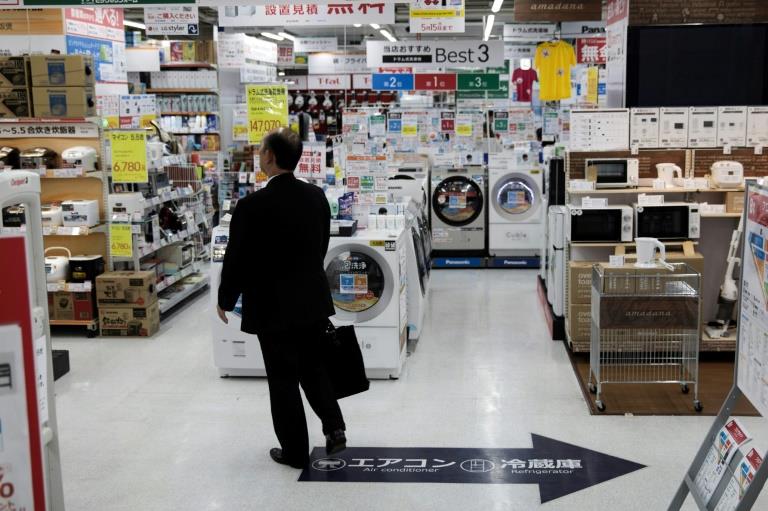
Japan inflation ticks up again, but way off BoJ target
After stripping out the volatile cost of fresh food, the inflation rate came in at 0.5 percent, the seventh straight month of gains, according to the internal affairs ministry.
Excluding fresh food and energy, prices edged up just 0.1 percent in July.
The figures are nowhere near the Bank of Japan's 2.0 inflation target -- seen as crucial to conquering a long struggle to slay deflation, blamed for holding back the once-booming economy.
Japan's prospects have recently improved, however, with investments linked to the Tokyo 2020 Olympics giving the economy a shot in the arm.
The world's number three economy expanded by 1.0 percent in the April-June period, notching up its sixth straight quarter of growth and the longest economic expansion in more than a decade.
While the labour market is tight and business confidence is high, wage hikes have been tepid and efforts to lift inflation have fallen flat despite years of aggressive monetary easing by Japan's central bank.
The recent price gains have largely been due to higher energy costs rather than a crucial broad-based rise backed by stronger consumer spending.
"Energy costs are driving the rise in prices while other costs are almost flat," Koichi Fujishiro, senior economist at Dai-ichi Life Research Institute, told AFP.
Many economists think the central bank's inflation target is unrealistic and Fujishiro said the BoJ may have to redefine its price goals "by probably adding some conditions" to it.
And that redefinition may come during a possible leadership change at the BoJ next year, if the current governor Haruhiko Kuroda steps down after his five-year term expires although he can be reappointed, he added.
Last month, the Bank of Japan slashed its annual inflation forecast and once again delayed its timetable for hitting the two percent target.
It now expects to achieve the two percent objective sometime in the year to March 2020 -- years behind schedule.
Officials had originally set in 2013 a two-year timeline when unveiling the bank's massive monetary easing programme as part of Prime Minister Shinzo Abe's push to kickstart growth in the lumbering economy.
The BoJ had hoped consumers would spend more if prices were rising, persuading firms to expand operations and getting the economy humming. But wage growth has fallen below expectations and workers have less money to spend.

Legal Disclaimer:
MENAFN provides the
information “as is” without warranty of any kind. We do not accept
any responsibility or liability for the accuracy, content, images,
videos, licenses, completeness, legality, or reliability of the information
contained in this article. If you have any complaints or copyright
issues related to this article, kindly contact the provider above.

















Comments
No comment